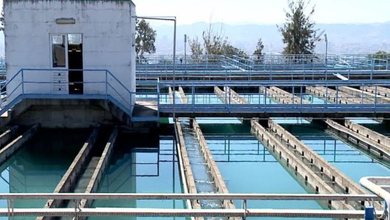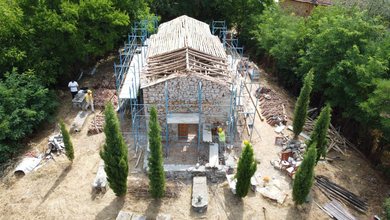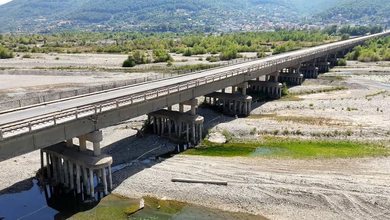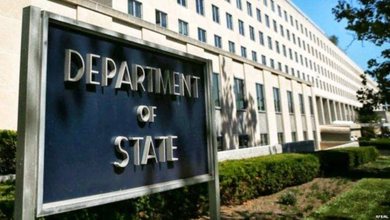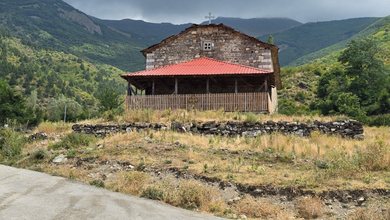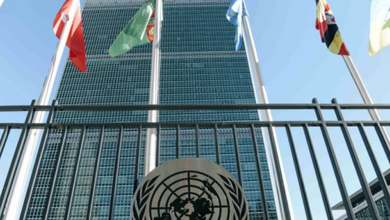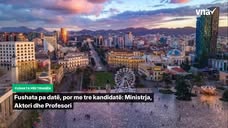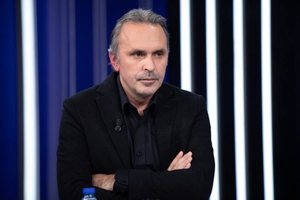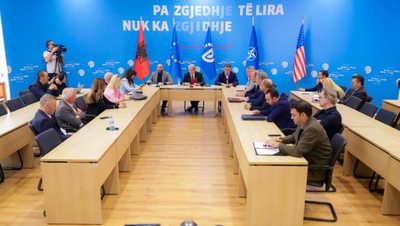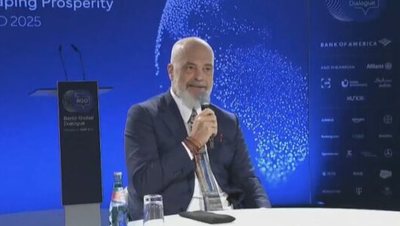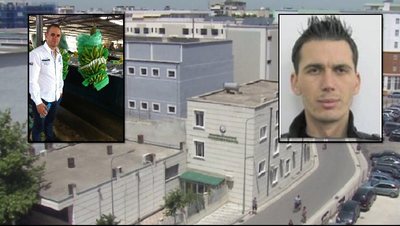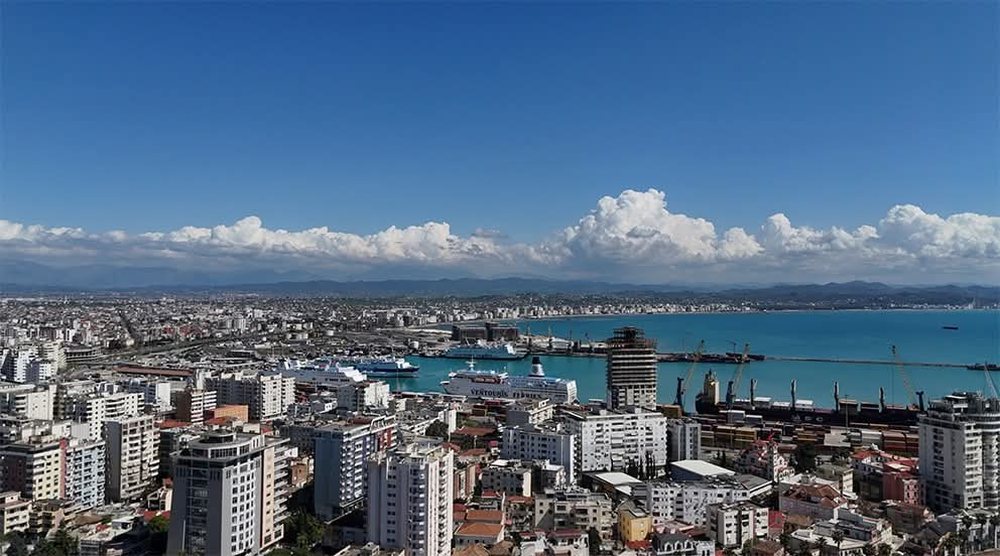
The Port of Durres reconstruction project is shrouded in doubt, and the ones who could lose out are Albanian citizens. Among the most controversial proposals is the idea of partially financing the project through the sale of apartments, even before construction work begins.
On January 9, 2021, a video posted on the official Instagram page of the luxury restaurant “Nusret” in Dubai sparked strong reactions in Albania. The video features Arben Ahmetaj, then Minister of Reconstruction (later Deputy Prime Minister), Belinda Balluku, Minister of Infrastructure and Energy, Endri Fuga, Advisor to the Prime Minister, Arbjan Mazniku, Deputy Mayor of Tirana, and businessman Samir Mane, along with Mohamed Alabbar, one of the most influential figures in the Middle East.
Alabbar is the founder and former chairman of Emaar Properties, one of the world's largest real estate development companies, known for iconic projects such as the Burj Khalifa in Dubai and the Downtown Dubai complex.
Responding to accusations of spending public money, Arbjan Mazniku stated that "we didn't even see the menu, the dinner was ordered and paid for by the company" as part of an official campaign to present reconstruction projects in Durres, including "the revitalization of the port."
This was probably the first time the Albanian public heard about this mega project that aims to change the face of one of the most important and oldest ports in the Balkans.
A billion-dollar deal with many uncertainties
On January 30, 2023, the Albanian government and the Eagle Hills Real Estate Development company, founded and run by Mohamed Alabbar, signed an agreement for an investment of two billion euros to transform Durrës into a city with two ports – one commercial and one tourist, including a yacht marina.
The current port will be relocated to the Porto Romano area, while the "Durrës Yachts & Marina" project will be built in its place.
According to the Prime Minister, the project will cover 450 hectares and is expected to create around 12,000 jobs. 13,000 apartments, 850 hotel rooms and 280 yacht berths will be built. It will be implemented in two phases: initially 4,000 apartments, hotels and shopping centers will be built within 5-7 years with an investment of 595 million euros. The second phase will further expand the project and will last up to 20 years.
The company will benefit from major fiscal incentives: exemption from VAT and customs duties, accelerated permit procedures (within 150 days), and a guarantee that fiscal conditions will not change for 99 years, protecting the investor's interests.
But according to Eduard Halimi, former Minister of Justice, 60% of Eagle Hills LLC is owned by five companies registered in the Cayman Islands, which raises doubts about financial transparency.
Albanian state with limited participation
In July 2022, the public company "Albanian Seaports Development Company" (ASDC) was founded with an initial capital of 10 million lek, which increased to 21.9 million lek by June 2024. ASDC owns 33% of the project and has created the subsidiary "Durrës Marina", responsible for the implementation of the project.
The project, worth 2 billion euros, is expected to generate 3.2 billion in profit, with the Albanian state benefiting around 281 million euros, a much lower percentage than what the investor receives.
No public competition and lack of transparency
In November 2022, 37 opposition MPs took the deal to the Constitutional Court as a major corruption scandal, but the Court dismissed the lawsuit twice.
Economist Pano Soko has highlighted 3 main problems:
Lack of competition (no international competitions),
Favorable conditions for the investor,
The risk from the financing scheme through the sale of apartments before construction.
According to him, the pre-sale of apartments, without any foundations laid, is a practice used only in "third world" countries and constitutes a major financial risk, which can lead to losses for the state and citizens.
He adds that Alabbar has carried out similar projects in Belgrade and Belarus without success and that this kind of "kindness" from Albania towards him is related to suspicions of financing with dirty money.
399 million euros from the budget for Porto Romano
Unlike the Marina, two public tenders have been organized for the commercial port of Porto Romano. The investment of 399 million euros will be fully covered by the state budget.
The initial tender in July 2024 was cancelled due to lack of bids. In December 2024 it was reopened without division into lots and two consortiums are competing:
Van Oord (Netherlands) & Besix (Belgium)
Archirodon (Greece), Deme Dredging NV & Dragaggi srl (Italy)
The winner will be selected after the evaluation of the economic offers.
But Aranita Brahaj, director of Open Data, highlights the lack of transparency in the selection of foreign companies, adding that the lack of foreign funding indicates a lack of international trust.
Weak local resistance and lack of voice from experts
Unlike Montenegro, where residents of Ulcinj protested against Alabbar's projects, in Albania resistance has been minimal. Propaganda portraying Durrës as the "Dubai of the Mediterranean" has been successful.
Urban planner Artan Kacani says that the current port is a unique engineering work built on floating columns, and the planned interventions could damage the seismic structure of the territory.
Another architect from Durrës, Enea Papa, says that it is still not clear whether a historical, tourist port, or something else is intended, adding that the city does not yet have the necessary infrastructure for the urban load that it will most likely have to cope with.
"In Durrës, drinking water is only supplied for two hours a day. How do they plan to get that water to all those residents and tourists? It's like trying to celebrate a wedding in a small two-room house: it can't be done, because there's no room for everyone! It takes a lot of courage to do such a thing!", comments the Pope.
The issue of the Port of Durres is much more than a simple infrastructure project. It reflects the way urban development, economic governance, and the relationship between government and citizens are conceived in Albania.
The lack of transparency, the systematic avoidance of the principle of competition, the tendency to exclude citizens and experts from decision-making processes, as well as doubts about the interests behind such a vast project – all these elements turn this story into a case study on the mismanagement of public space and the challenges that must be overcome to build a functional democracy.
Beyond the political rhetoric and promises of major investments, a fundamental question remains:
Who really benefits from this project?
And what do cities and our society lose when decisions about a country's urban future are made without public consultation, without proper analysis, and without accountability?
If this model were used for other strategic projects – including airports – we would end up building an Albania that, instead of protecting its citizens, serves narrow, invisible, and nefarious interests.
Source: Elira Kadriu/Osservatorio Balcani e Caucaso Transevropa


